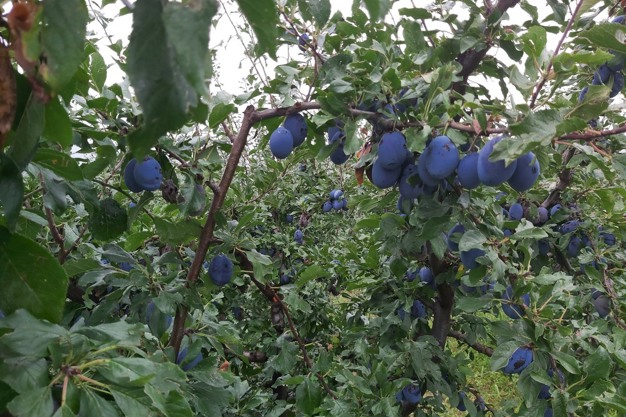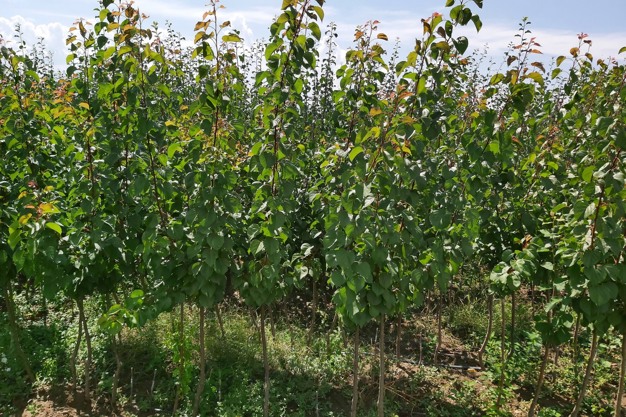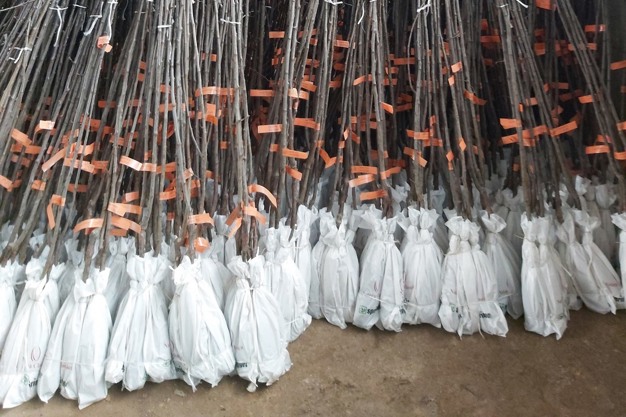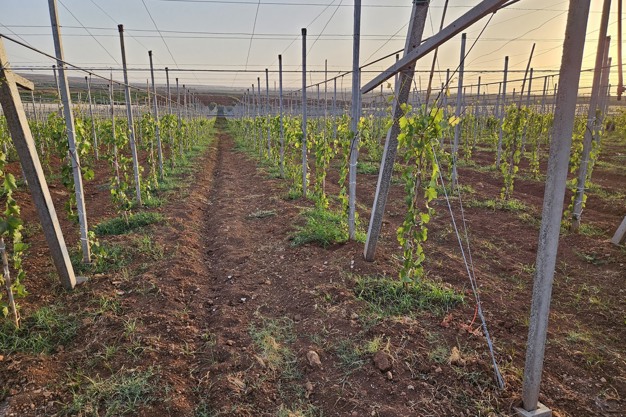The plum exports from Serbia to Western Europe and mainly Germany has been growing steadily over the past few seasons. Other stone fruit, such as apricots, struggle with losses due to frost in late spring. Ivica Djordjevic, from the family nursery 'Kalem Djordjevic' based in central Serbia, says "the recent good weather, with not too much rain is food for the stone fruit. The plants that we put into the field in March are growing well."

Now he says they are hoping for a lot of sunshine for the fruit to ripen and to have the best quality. "Our apricots, peaches, nectarines, plums, which we usually have in Serbia, we're planting a lot of plums, production is increasing every year. For the other fruit it is a bit less than plums, but also growing, although not too much."
 Serbian apricot trees.
Serbian apricot trees.
He says the Serbian climate for apricots is not ideal. "Our climate is not too good for apricots. We have late frost that started this year. Over the last two years we've had late frost in March. During February, the weather was very warm at 20 degrees, which caused the apricots to start budding. Then in March is started to be colder and we had frost, which destroyed a lot of apricots, also some other fruit. It is too much for apricots to first start with warm weather and then a few days of frost. Due to this we will also have smaller quantities of fresh apricots on the markets, prices will be higher."

Plum trees in the nursery.
Serbian plums to Germany and Western Europe
"We also export plums to other Balkan countries like Bosnia, North Macedonia, Montenegro, Russia and other markets. Plums are mostly for consumption in Serbia with 80% of the plants for the local market and the rest for the other markets that is going for dried prunes. In the last two years growers stared to export more and more fresh plums to Germany and the Western side of Europe on their markets. Because we have a lot of plums, people are exporting more fresh plums. They usually export dry plums. Fresh is increasing," states Djordjevic.
Serbia has more than 40 million plum trees planted and ranks third in the world in terms of fresh plum production, with an average production over 600,000 tons per year. "There is also a big local market where plums are used for our traditional brandy alcoholic drink, Rakija."
He says as a nursery due to Serbia not being formally in the European Union, they are not allowed to export stone fruit trees to growers in Europe. "We can only export apple, pear, quince and hazelnut trees along with some berries and rose trees. I don't know when they will allow it, they are working on it, but it can take another five years."

Young table grape vines planted in Serbia.
Traditional table grapes for North Africa region
As nursery Kalem Djordjevic grafts and sells table grape plants to growers in North Africa region. "The grape plants are growing well, we put them in the fields one month ago. It will be there until November when it's ready to be exported. This year we doubled our production of grape plants, with 80% of our grafted table grapes going to Egypt, Libya, Morocco and Algeria, we are increasing the quantity sent to them. We send the standard varieties we have like Italia, Victoria, Michele Palieri, Cardinal, Sultanine and Muscat Hamburg to them," says Djordjevic.
He says the table grape plantations is much smaller than the wine grapes in Serbia, while the newer table grape varieties remain hard to obtain. "We don't have the new varieties, they are under licence, but we will wait for some other time to get them. We also need the clients to be able to pay for the royalty and licence," concludes Djordjevic.
For more information:
Ivica Djordjevic
Kalem Djordjevic Nursery
Tel: +381 64 580 44 66
Email: [email protected]
www.kalemdjordjevic.ml
